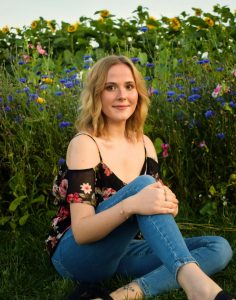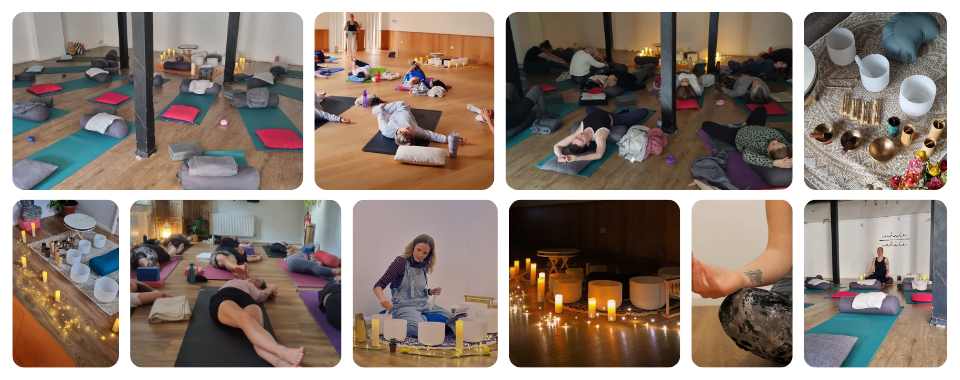A Few Benefits of Yoga
Yoga stands as a profound spiritual discipline, an intricate science seeking harmony between mind and body—an artful science of wholesome living, connected to your Dharma, your soul’s purpose. Derived from the Sanskrit root ‘Yuj,’ meaning ‘to join’ or ‘to unite,’ it unifies individual consciousness with the Universal Consciousness, fostering a profound connection between the self, mind, body, and nature. This ancient practice seeks the convergence of existence, where everything in the universe aligns within the same quantum fabric. The one who experiences this unity attains the revered state of a yogi, achieving liberation—known as Mukti, Nirvana, or Moksha—free from all sufferings. The ultimate goal? Self-realisation transcends limitations to attain ‘the state of liberation’ or ‘freedom.’
Yoga encompasses an inner science, offering diverse methods to realise this union and take command of one’s destiny (Dharma). It’s regarded as an enduring cultural legacy dating back to the Indus Sarasvati Valley Civilisation, around 2700 B.C., nurturing both material and spiritual elevation in humanity.
Fundamentally, Yoga embodies basic humane values—a testament to its identity as a path of personal and societal evolution. Living with freedom, health, and harmony becomes the cornerstone of Yoga practice, encompassing not just physical fitness but an elevation of consciousness and inner fulfilment.
It’s challenging to summarise the extensive physical benefits of yoga, as they vary widely depending on the tradition, style, practice, discipline, lineage, etc. A vigorous Ashtanga practice offers different physical benefits compared to a calming Yin practice, while Kirtan, mantra, mudra, yoga nidra, and meditation practices (the list goes on) have distinctly different physical benefits as they involve limited movement/Asana. Each practice has its unique advantages, and the best choice depends on your individual goals and desires.
The physical benefits of yoga have always been secondary. Yoga is fundamentally about finding stability, not flexibility. Once you find a practice that brings stability to your mind, body, and spirit, you’ve discovered the practice that works best for YOU.
The emotional benefits of yoga are substantial and vary from person to person, depending on their circumstances and the specific practice they commit to. Scientifically, yoga has been proven to trigger the release of neurotransmitters like dopamine, serotonin, and norepinephrine, leading to a boost in mood. On a subtler level, a disciplined, conscious practice tailored to the individual can enhance the quality of the mind and body’s subtle layers, improving the flow of Prana (life-force energy) and fostering stability, radiance, and ease.
By understanding our breath and the subtle layers through practice, we can influence the state of our mind. When stressed or anxious, our breath becomes shallow, chaotic and making our mind move fast, irrationally and impulsively, feeding this frantic state. However, by learning to harness our breath and connect to the subtle energies within, we can manage our perception and emotional state with greater ease.
If you are fiery by nature or, in Ayurvedic terms (Yoga’s sister science), highly ‘Pitta’, a hot, fast-paced Vinyasa yoga practice is likely to overstimulate you and add to the fiery nature already prevalent, worsening your emotional state, but it may also be highly jarring for you to attend a vipassana 10-day retreat as your body wouldn’t be grounded enough. Conversely, ‘Yang’ practices can benefit those feeling stagnant, heavy, lethargic, or ‘Kaphic’. We are often drawn to our imbalances, yet the medicine is found within finding balance and stability – Yin & Yang, finding a stable ground to interchange between the sympathetic and parasympathetic nervous system states without creating a state of dis-ease. It’s one thing to read about the emotional benefits of yoga or hear someone discuss them, but until you try different practices, it’s difficult to know how they will benefit you personally and that’s the beauty of the range of the diversity of this incredible life-science.
Attending practices where other people are present fosters social interaction, creating a sense of community and support, potentially enhancing mental and physical health through the positive influence of social ties. Also, finding more stability within yourself will increase self-esteem and self-confidence. The sense of union experienced when practising in harmony with others fosters a feeling of belonging – if you’ve attended a kirtan session you’ll immediately understand the sense of community!
Who is Savannah Jayne?
Co-owner of Alleviate Holistics

Savannah Jayne, Co-Owner of Alleviate Holistics, Ayurvedic Wellness Coach, Yoga and Sound Practitioner, and Holistic Healer, brings over a decade of personal practice and an unwavering passion for natural, preventative medicine. With a deep commitment to supporting others on their healing journeys, Savannah blends ancient wisdom with modern insights to create personalised pathways for restoring vitality and well-being.
Her focus is on providing Ayurvedic 1:1 preventative medicine and holistic healing sessions, carefully designed to help clients navigate health challenges, regain energy, and restore balance in their lives. Savannah’s approach is grounded in her own experiences with chronic illness and nervous system disorders, alongside a compassionate and empathic presence. She creates a safe, nurturing space where individuals can explore their unique path, reconnect with their body’s innate wisdom, and embrace the rhythms of nature. Savannah embraces the idea that sometimes, instead of pushing against the current, the best thing we can do is surrender, trusting the process and allowing space for healing.
In each session, Savannah empowers you to become your own best healer, cultivating self-awareness, compassion, and alignment with your true nature. Her teachings extend beyond just the physical, nurturing the mental, emotional, and spiritual dimensions of health for a holistic approach to healing.
Savannah is dedicated to the continual expansion of her knowledge, which she shares with a heartfelt commitment to each client. In addition to her 1:1 sessions, she offers seasonal workshops and events that honour individual needs in a warm, inclusive environment. Through her guidance, you’ll learn how to live in harmony with the seasons, deepen your understanding of your body, and cultivate lasting wellness.
Savannah’s passion for holistic health and her devotion to each person’s journey make her a trusted guide in helping you heal, thrive, and reconnect with your true self.
Her teaching extends far beyond postures, interweaving Yoga, Ayurveda, cyclical living, seasonal rhythms, nature, and intuition. She guides with warmth and depth, embracing the mental, emotional, and spiritual dimensions of practice. Savannah wholeheartedly believes in holistic approaches to health and wellness as a path to living in alignment with one’s true nature – cultivating balance, self-awareness, and compassion while moving towards a symptom-free life.
Driven by an insatiable curiosity and a deep commitment to managing her own chronic illness, Savannah continuously immerses herself in philosophical and psychological wisdom – not only to deepen her understanding but to share transformative insights that empower others.
Her teaching style reflects a profound connection to yoga, cyclical living, the seasons, nature, and intuition, extending beyond postures to embrace mental, emotional, and spiritual dimensions. Savannah passionately advocates for yoga’s transformative potential to foster mindfulness, self-awareness, and compassion, recognising and celebrating the uniqueness within each individual.
Savannah has a deep curiosity and thirst for understanding philosophical, psychological and psychospiritual wisdom, not only to enhance her own life but also to enrich the lives of others.
Work or Practice with Savannah Jayne

